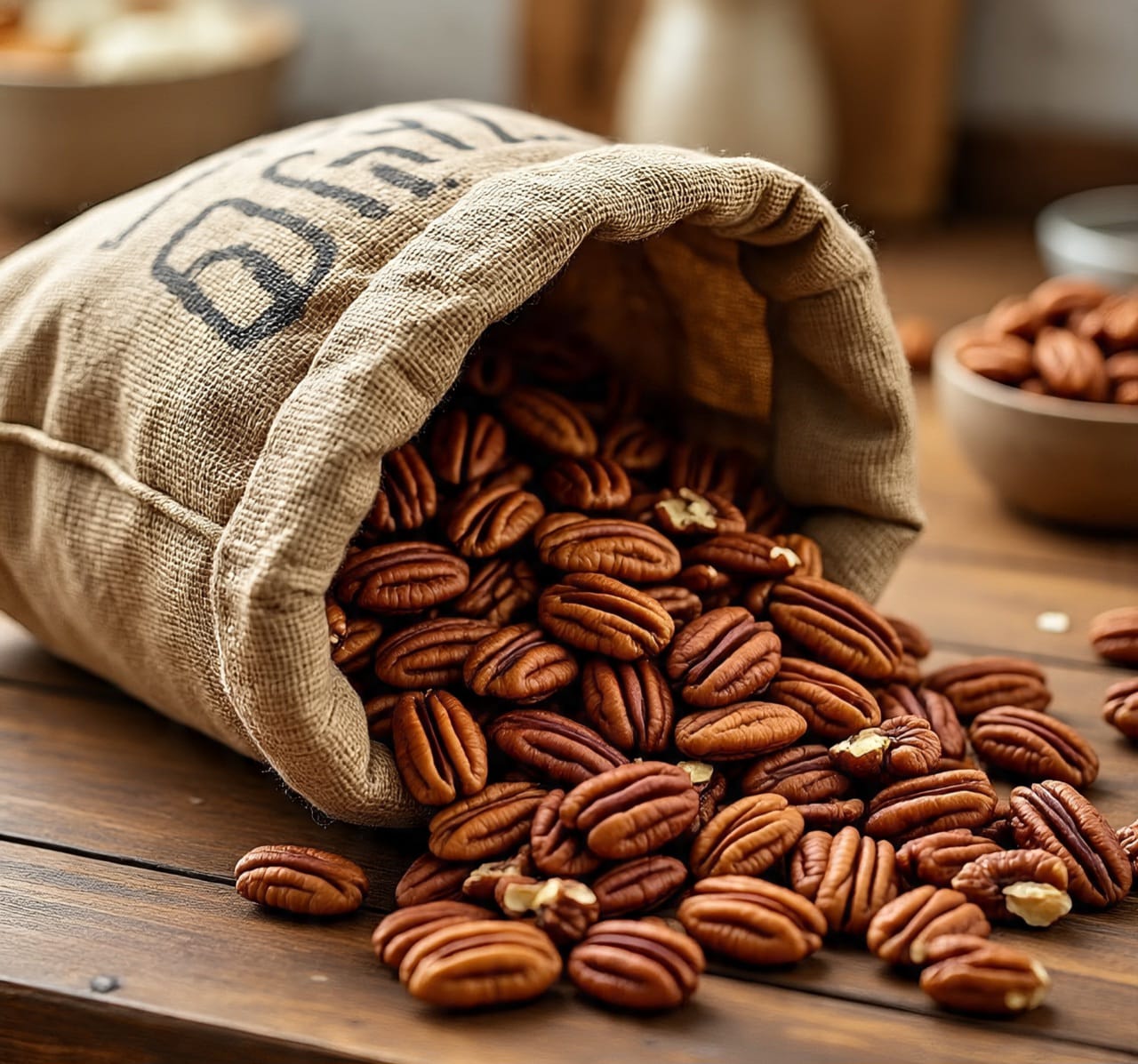The Power of Pecans: Nature’s Delicious Supernut
Nestled in the pristine valleys of Kashmir, where the climate is perfect for walnut and almond orchards, a new nut is quietly making its mark — the pecan. Traditionally grown in the southern United States, pecan trees have recently found a new home in parts of Kashmir, thanks to the region’s fertile soil, temperate climate, and increasing interest in crop diversification. pecan nuts
Pecans in Kashmir are still in their early stages of cultivation, but local farmers and horticulturists are optimistic. These trees, once established, are long-living and highly productive, offering a sustainable and profitable crop. Compared to walnuts, pecans have a thinner shell, a richer, buttery flavor, and are easier to crack — qualities that appeal to both local consumers and export markets.
Moreover, with growing awareness about healthy eating, pecans are being recognized for their nutritional benefits: rich in healthy fats, antioxidants, vitamins, and fiber. If supported by proper infrastructure and marketing, Kashmiri pecans could soon become a prized addition to the valley’s rich horticultural legacy.
From apple orchards to pecan groves, Kashmir’s agricultural future is looking more diverse — and delicious — than ever.
– cyprus premium, kashmiri nuts
Pecan nuts,

🌰 What Are Pecans?
Pecans (pronounced pee-KAHNS or PEE-cans, depending on where you’re from) are tree nuts native to North America. In fact, the United States is the largest producer of pecans, with most commercial varieties coming from the southern states like Georgia, Texas, and New Mexico.
Botanically, pecans come from the Carya illinoinensis tree, a species of hickory. Their name comes from the Algonquin word pakani, which was used to describe nuts that required a stone to crack.
🧠 Health Benefits of Pecans
Don’t let their buttery taste fool you — pecans are a nutritional powerhouse. Here’s what these tasty nuts offer:
- Heart-Healthy Fats: Pecans are rich in monounsaturated fats, the same type of fat found in olive oil and avocados. These can help lower “bad” LDL cholesterol.
- Antioxidants: Pecans rank among the top nuts for antioxidant content. They’re high in vitamin E, ellagic acid, and flavonoids, which combat oxidative stress and inflammation.
- Brain Support: Thanks to their vitamin B1 (thiamine), copper, and manganese, pecans may help protect cognitive function and support brain health over time.
- Fiber-Rich: A single ounce (about 19 halves) offers 3 grams of dietary fiber, aiding in digestion and promoting satiety.
- Naturally Low in Sugar: Despite their sweet taste, pecans are low in sugar, making them a great choice for low-carb or diabetic-friendly diets.
🍽️ Culinary Uses
Pecans are one of the most versatile nuts in the kitchen. Here are some ways to enjoy them:
- Pecan Pie: The quintessential Southern dessert, rich and sweet, perfect for holidays.
- Salads: Toasted pecans add crunch and depth to leafy greens or grain bowls.
- Pecan-Crusted Proteins: Crushed pecans make a flavorful crust for chicken, fish, or tofu.
- Trail Mix: Combine with dried fruits, dark chocolate, and seeds for an energy-boosting snack.
- Nut Butter: Pecan butter is smooth, rich, and a unique alternative to peanut butter.
Pro tip: Toasting pecans (just 5–7 minutes in a dry pan or oven) intensifies their flavor dramatically.
🌿 Sustainability & Farming
Pecan trees can live for hundreds of years, and their deep roots help with soil health and water retention. While they do require consistent watering — especially during nut development — pecans are a relatively sustainable crop when grown with care. Many small family farms in the U.S. have cultivated pecans for generations, contributing to both local economies and biodiversity.
🛒 Buying & Storing Tips
- Look for: Plump, uniform nuts with a rich brown color. Organic and raw options are best if you plan to roast them yourself.
- Avoid: Pecans with a bitter or rancid smell — they’ve likely gone bad due to their high oil content.
- Storage: Keep pecans in an airtight container. For long-term storage, the fridge or freezer prevents spoilage and extends freshness.
🧁 Final Thoughts
Pecans are more than just a delicious snack — they’re a symbol of American agricultural history, a healthful addition to your diet, and a true culinary gem. Whether you enjoy them in sweet treats or savory dishes, there’s always a good reason to add a handful of pecans to your day.
Have a favorite pecan recipe or memory? Share it in the review below!

